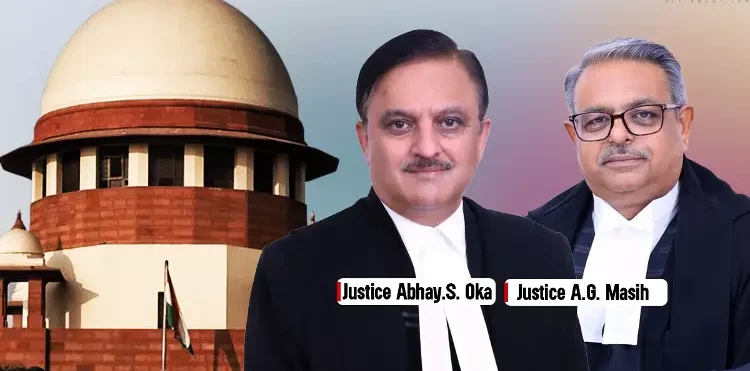The Supreme Court on Tuesday (August 13) held that ‘bail is the rule, jail is the exception’ even in special statutes like the Unlawful Activities (Prevention) Act 1967.
A bench of Justice Abhay Oka and Justice Augustine George Masih granted bail to a man accused of renting out his property to alleged members of banned organization Popular Front of India (PFI) for allegedly conducting PFI training sessions.
“When there is a case for grant of bail the court should not hesitate to grant bail. Allegations of the prosecution may be very serious, but the court’s duty is to consider the case for bail in accordance with law. Now we have said that bail is the rule and jail is the exception is applied even to special statutes. If courts start denying bail in deserving cases, it will be a violation of rights guaranteed under Article 21,” Justice Oka said pronouncing the verdict.
The Court allowed bail to Jalaluddin Khan who filed appeal against the judgment of the Patna High Court denying him bail.
Appellant Jalaluddin Khan was allegedly involved in plans to disrupt the Prime Minister’s visit to Bihar and other unlawful activities tied to the banned organization Popular Front of India (PFI). He was booked under Sections 120, 120B, 121,121A, 153A, 153B and 34 of the IPC and offences under the UAPA .
Documents allegedly related to unlawful activities were discovered during a police raid at the premises rented out by Khan. He had rented the first floor of his house to a co-accused allegedly for the purpose of conducting PFI training sessions on July 6 and 7, 2022. Jalaluddin initially denied knowledge of these activities but later admitted to renting out the premises. Individuals from outside Bihar allegedly participated in the training. As per the prosecution, these training sessions were part of a broader plan to regroup former members of SIMI (Students Islamic Movement of India) and PFI into a new group with the intent to take violent actions in retaliation for perceived atrocities against Muslims in India.
The appellant claimed that he was not affiliated with PFI or any banned organization and that his involvement was limited to renting property.
The Special NIA Court had earlier rejected their bail applications.
The HC, after reviewing the police documents, charge sheet, and statements of protected witnesses, upheld the Special Court’s decision to deny bail to appellant and his co-accused Athar Parwez citing Section 43D of the Unlawful Activities (Prevention) Act, 1967. The Court cited the severity of the charges, the risk of the offense being repeated, and the potential for evidence tampering as reasons for maintaining the bail denial. Thus, the appellant approached the Supreme Court.
The HC also ruled that providing legal assistance to members of banned organizations, such as the PFI does not fall under any of the proscribed categories of terrorist acts under the UAPA while granting bail to co-accused Advocate Nooruddin Jangi, booked under Sections 120, 120B, 121, 121A, 153A, 153B, and 34 of the IPC.
Case no. – Crl.A. No. 3173/2024
Case Title – Jalaluddin Khan v. Union of India
#airr #news #airrnews #channel #Legal #case #India #court #highcourt #supremecourt




